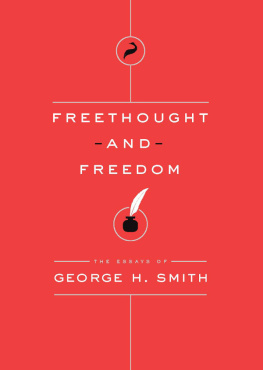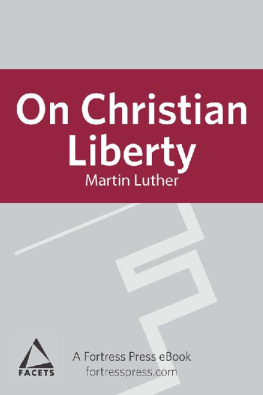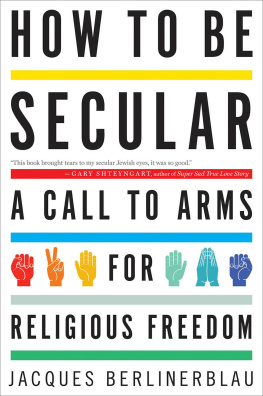
BOUND TO BE FREE

On 7 January 2015, Sad and Chrif Kouachi, two Frenchmen of Algerian extraction, burst into the offices of the French satirical magazine Charlie Hebdo in Paris, killing ten journalists and two policemen. Afterwards, the world reacted with a passion. One and a half million people marched in Paris, joined by world leaders who could not afford not to be seen to be there. Twitter was swimming with #jesuischarlie. Instinctively wanting to register my disgust at this act of barbarism, I remember starting out on my own 140 characters, but something held me back from joining in the jesuischarlie chorus. It certainly wasnt any sympathy for the jihadists or their cause but did I really want to support the version of freedom exercised by the cartoonists of CharlieHebdo? After all, this was a clash between two very different visions of life: secularism and Islamism, and I hold to neither.
The fiercely held vision of the Charlie Hebdo artists and journalists was the freedom to say, write or draw what they liked, regardless of whether it offended anyone else. It was the freedom to express their mind, even if that meant insulting or mocking others, safe behind the principle of freedom of speech that meant no-one could infringe their freedom to say what they wished. The Islamist view was the opposite: the desire to close down such blasphemous freedom as an insult to God and all that is sacred. It was the conviction that such absolute freedom was blasphemous, and that true freedom comes from submission to the law the will and way of life laid down by Allah.
The episode made me start thinking about the nature of the freedom we prize so highly and want to protect. Soon after, I wrote a short article for The Times newspaper in London, outlining some of the embryonic themes of this book. The article received more feedback and comment than any other I had written in the national press, which in turn made me want to dig deeper into this theme of freedom. The result is the book you hold in your hands.
Freedom is one of the most commonly invoked ideas in contemporary life. In a cynical age, it is one of the few ideas that inspire devotion, energy, even sacrifice. Freedom is undoubtedly A Good Thing. Yet the larger question is: what kind of freedom do we want? Or better, what kind of freedom do we need? What vision of freedom gives us the best opportunity to thrive as human beings in the world?
There are of course competing visions of freedom and what it means and requires. These visions of freedom all have historical genealogies, and part of the purpose of this book is to give a brief, and hopefully accessible, intellectual history of the concept of freedom. It starts with an overview of the importance of the idea of freedom in Western culture, on both sides of the Atlantic. It continues with a brief account of some of the key architects of our contemporary ideas of freedom: John Locke, Jean-Jacques Rousseau and John Stuart Mill. It then looks at some more recent figures who offer alternative perspectives on freedom, opening out our understanding of the notion and the various ways of looking at it. The next few chapters trace the idea of freedom within Christian thought, noticing along the way a variety of views, but focusing on a particular way of understanding freedom in St Paul, St Augustine, Anselm, Thomas Aquinas and Martin Luther, showing how, although their theologies differ in a number of respects, their approaches to the idea of freedom have a kind of family resemblance and a common understanding. In the light of all this, the penultimate chapter looks at the vital concept of human rights and how useful that is as a basis for freedom in personal and social life. The concluding chapter draws the discussion together, arguing for a Christian notion of freedom that enables people to flourish better than some of the secular, libertarian models that were explored earlier in the book.
Needless to say, this book, like any other, has depended on the ideas and thoughts of many. I am always very grateful to those who discuss ideas with me beforehand, and who offer to read my books before they emerge, to help iron out mistakes, correct assumptions, spot errors and so on.
My particular thanks are due to my academic colleagues at St Mellitus College, Chris Tilling for his comments on St Paul, Donna Lazenby for pointing me to Iris Murdoch, and Stephen Backhouse for his advice on the modern history of the idea of freedom. Andrew Dilnot also gave very valuable suggestions from an economic and social perspective. I am grateful to all of them for expert and wise advice, recommendations and suggestions, and for saving me from several errors. Im also indebted to others who read versions of the text and gave invaluable comments, or whose ideas and thoughts have helped me, including Adele Cameron, Graham Charkham, Gail Featherstone, Matt Key, Paul Marshall, Tim May, Alex Rayment, Carl Robinson, Jonathan Rust, Joseph Snelling and George White. I am also
A number of others gave practical help in editing and revising the text, for which I am very grateful, including Heidi Cormell, Jennalise Kassanis and Fiona Holmer. Robin Baird-Smith and Jamie Birkett from Bloomsbury and Graham Coster have all helped make the book better than it would have been otherwise. Needless to say, remaining errors and opinions expressed are down to me, not them.
Jesus once said, If you continue in my word, you are truly my disciples; and you will know the truth, and the truth will make you free. This book is brief. It does not claim to be a comprehensive account of freedom. My hope is that it helps Christian and other readers understand a little better what Jesus might have meant, and how his understanding of freedom might enable us to grow, not just in our understanding of freedom, but also in exercising and enjoying it.
Graham Tomlin
April 2017
.
The camera pans over some barren but strangely beautiful hills, stretching into the distance. The scene cuts to a busy office, with people milling around computer screens, photocopiers and desks. Back again to the dry, quiet, rolling hills only this time they are the backdrop to a deserted and inviting sandy beach, with curling waves stretching into the distance. A few more shots of the noisy office, then back to the beach but now its clear we are seeing the office through the screen of a laptop, perched on a simple wooden table in the middle of the beach. A man dressed in beach clothes and with bare feet sends a quick email, closes the laptop screen, tucks it under his arm and goes for a walk along the beach. The caption which closes the advert reads, Choose Freedom.
Its only an ad for a laptop, but it tells a story which goes right to the heart of a dream that has held the Western world in thrall for several few hundred years: the dream of freedom. Given the choice between life in the city, trudging to work, battling through a typical office day, and living by the beach and doing our work with the help of a portable computer, few of us would take long to decide. It is the choice which is new the freedom to choose.
THE LURE OF FREEDOM
Freedom is one of those big ideas which define our culture. And it affects far more than just advertising. Back in 2003, President George W. Bush announced that the US and its allies had finally launched their long-expected attack on Iraq. The reasons behind it were of course complex, but in Bushs usual way he reduced them to one single theme: the defence of freedom. As he told the world that evening: We will defend our freedom. We will bring freedom to others and we will prevail.
Next page
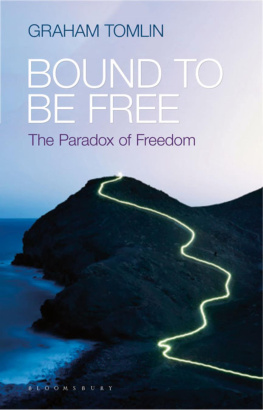

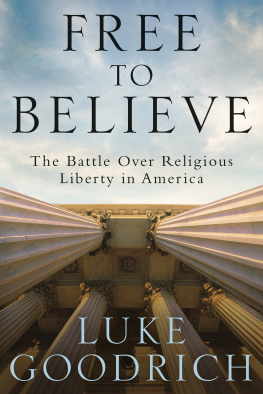
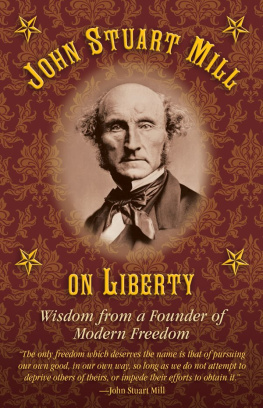
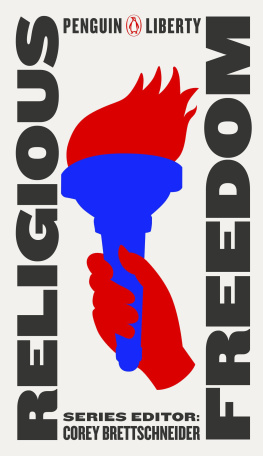
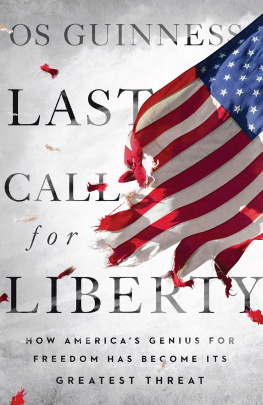
![Blackford - Freedom of religion [and] the secular state](/uploads/posts/book/167779/thumbs/blackford-freedom-of-religion-and-the-secular.jpg)
